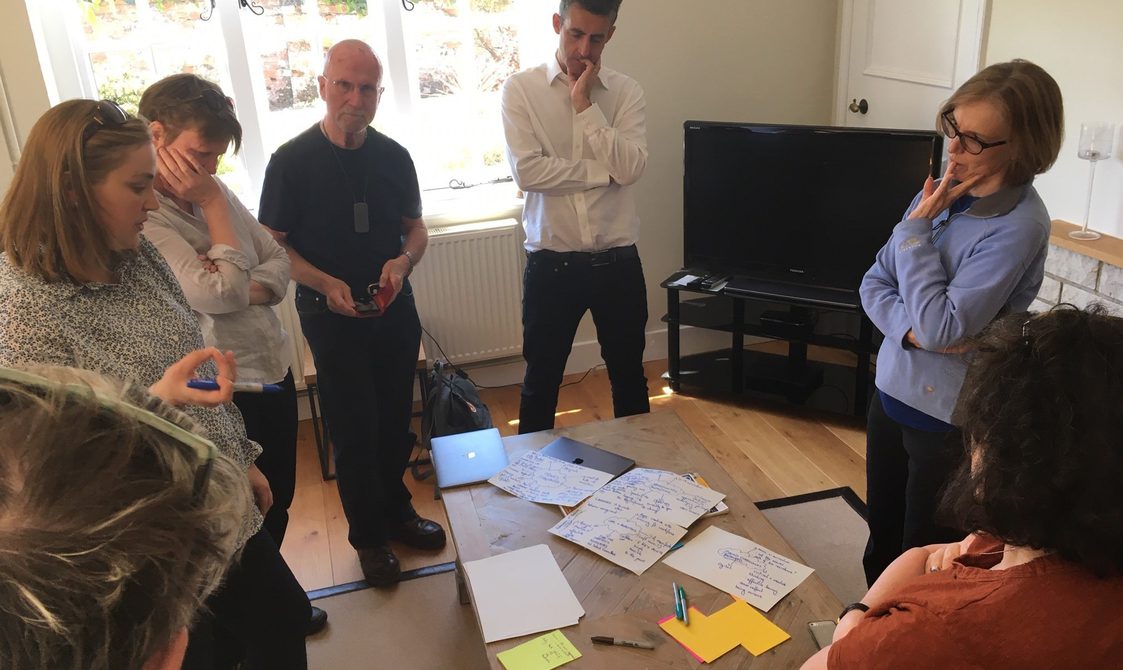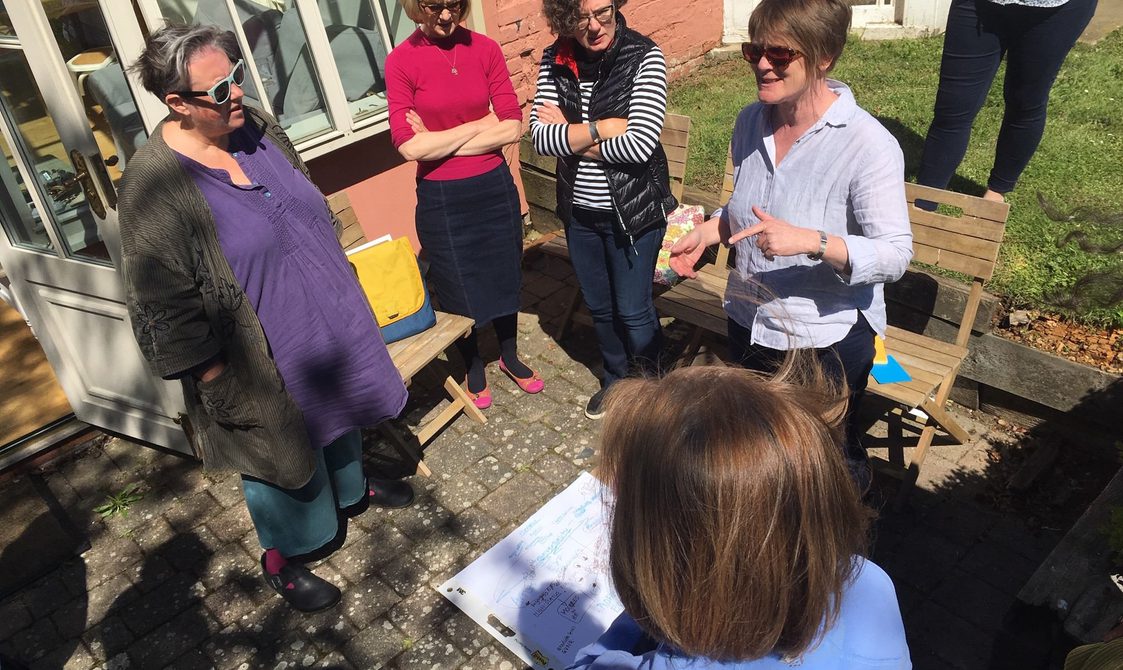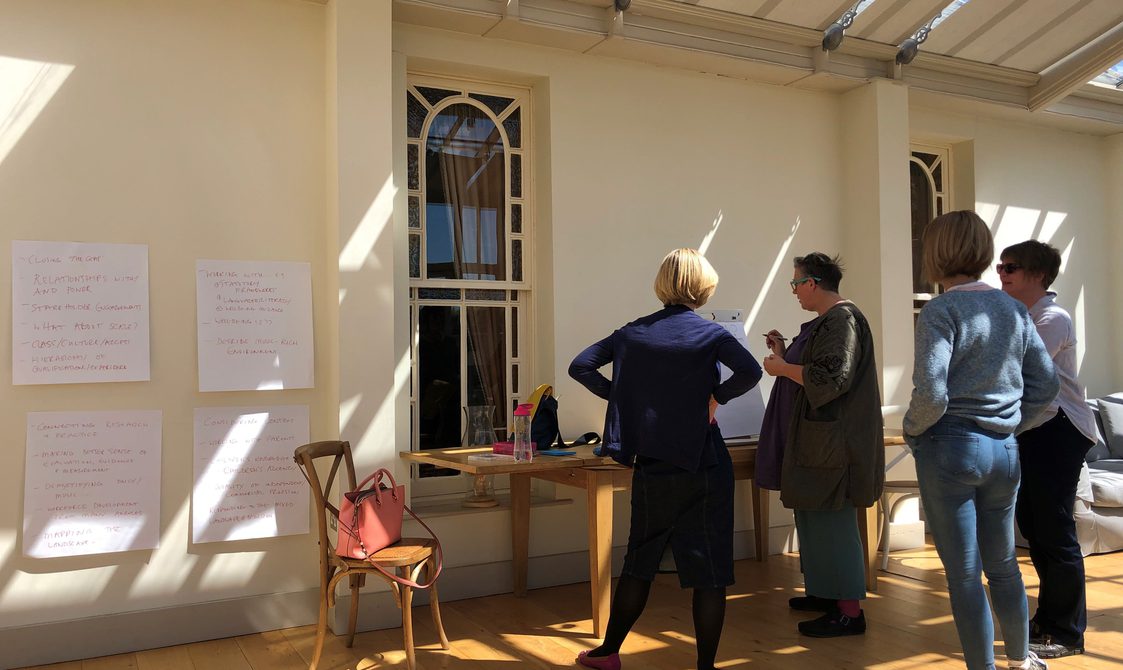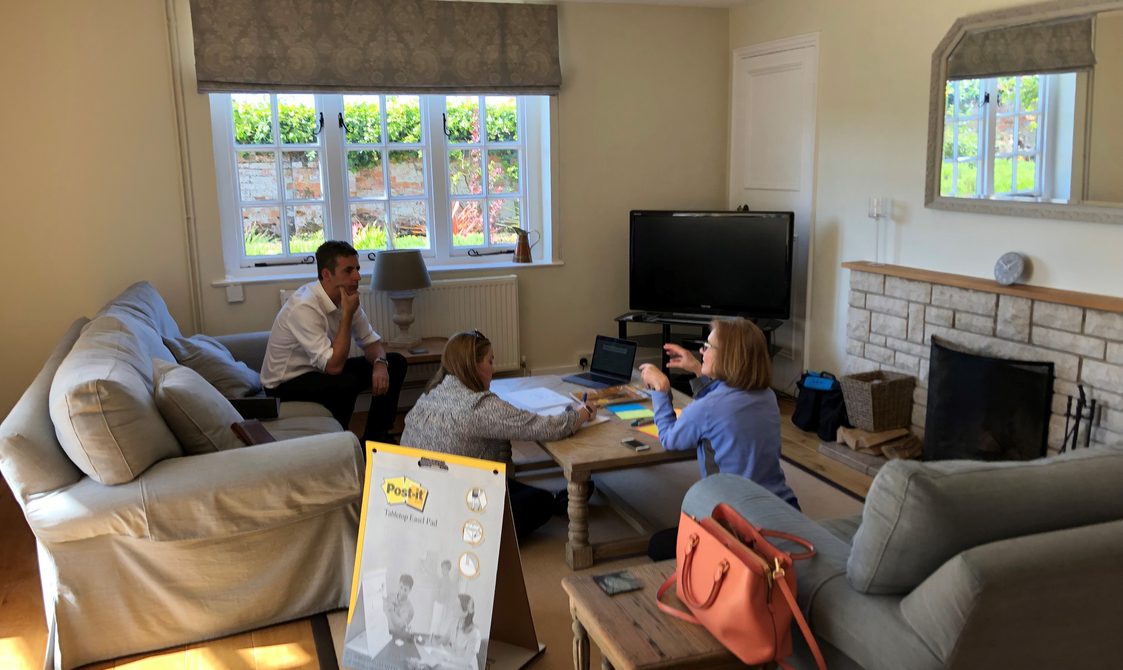Series: Creative Thinktanks
Ideas explored: music for health and wellbeing
Our third Creative Thinktank examined how music impacts development in the early stages of our lives.
Co-created by Professor Margaret Barrett, Professor Graham Welch, and Katherine Zeserson, the event brought together researchers, practitioners, advocates, policy-makers and education professionals to consider the following:
- What is known, what is contested and what is unknown about the impacts of music on wellbeing in the early years?
- What are the barriers to effective early years music education in the home, community and pre-school settings
- What are the strengths and weaknesses of current early years music provision?
- What training and support is needed for practitioners?
- What research questions are arising for further investigation?
Discussions
Ideas explored embraced a wide range of wellbeings, including physical, psychological, emotional, social, educational and musical. Discussions indicated that:
- engaging successfully in music pre-school is likely to bring additional developmental benefits
- this is especially likely to be the case where the adults involved (parents, carers, teachers, assistants) are enabled to develop insightful values and beliefs about such benefits. This creates a virtuous circle to enable and foster both musical and wider development.
Proposal 1
A Research Project
To enrich young children’s vocabulary through music and sound.
Significance:
To address the speech, language and communication needs deficit which remains unchanged since 2008. This will be a 4-pronged approach involving musicians, children, parents and early years practitioners.
Summary:
A two-year RCT/ethnographic study examining the impact of music-based interventions on the language development of early years children.
Three groups would be compared:
- Control (no interventions)
- With interventions by music leader and music-trained EY practitioner
- With interventions by music leader, music-trained EY practitioner, and music-trained parents
Partners: Speech and language therapists, NHS, HHCP (e.g. CF/MA), arts partners
Outcomes:
- Children’s vocabulary improved
- Empowered parents
- Early Years practitioners confident to deliver
- Music leaders – increased pedagogical understanding
- Critical thinking & creativity levels increased for all stakeholders
Proposal 2
A Physical Space
To establish a physical space in Suffolk where early years pedagogy encounters experimental, provocative & exquisite arts practice.
Significance:
An interdisciplinary, cross sector, early years arts centre, funded and supported by educational, artistic, health, social care, community, charities, and industry. It would increase cultural capital and social mobility, and meet the wellbeing agenda for children, their families and the early years workforce.
Summary:
A purpose-built arts centre in the heart of the community (with satellite venues) designed to facilitate the engagement of early years children with all areas of the arts. To include a permanent EY setting, a performance space, training space, resident artists, researchers and EY practitioners.
Partners:
HE institutions, NHS, researchers, artists, arts organisations (e.g. ACE, Snape), EY practitioners and settings, parents, children, local industry, trusts (e.g. Wellcome), local authorities and governance, celebrities and patrons.
Outcomes:
- A centre that can be used by international partners as a model for inclusive, cross sector practice
- Ground-breaking new (smudged) research and innovative artistic work
- EY practitioners who are confident in embedding the arts in their practice
- The arts to be viewed as more accessible and valuable by the EY sector
Participants
Amy Mallett
Charlotte Arculus
Christina MacRae
Dina East
Dominic Wyse
Graham Welch
Jessica Pitt
Julia Partington
Julian Knight
Katherine Zeserson
Lil Newton
Margaret Barrett
Phillipa Reive
Related reading
http://uq.edu.au/research/impact/stories/thank-you-for-the-music/
https://music.uq.edu.au/profile/723/margaret-barrett
https://www.magic-adventure.co.uk/
https://www.sound-connections.org.uk/wp-content/uploads/Music-in-the-Early-Years-Who-What-Why.pdf
https://www.early-education.org.uk/sites/default/files/Musical%20Development%20Matters%20ONLINE.pdf
https://www.eadt.co.uk/news/parents-react-to-closure-of-speech-and-language-hubs-1-5999189?sfns=mo
Wyse, D. (2017). How Writing Works: From the Invention of the Alphabet to the Rise of Social Media. Cambridge: Cambridge University Press.
Recent blog based on research on curriculum internationally: https://www.bera.ac.uk/blog/what-next-for-curriculum
Wyse, D., Jones, R. Bradford, H. & Wolpert, M. A. (2018). Teaching English, language and literacy (Fourth Edition). London: Routledge.
Wyse, D. & Torgerson, C. (2017). Experimental trials and ‘what works?’ in education: The case of grammar for writing. British Educational Research Journal. Vol. 43(6), p, 1019-1047. DOI: 10.1002/berj.3315 (30).
Image gallery
A gallery slider






It was very useful to have such a broad base of professional insights. This enabled the discussion to be more outward focused and multi-faceted. It was a useful reminder of the multifaceted nature of musical experience, especially for the young.Thinktank attendee
I would like to say how much I enjoyed the opportunity to attend the Thinktank. It allowed research and practice to come together in an open space where it was possible to put the usual institutional working constraints that you work within to one side, and to create propositions for action, and possibilities for new relationships. This was an inclusive space in which ideas could emerge, float, and then be reshaped through discussion. It was in part facilitated by the special environment both of the Snape Maltings but also the particular convivial and welcoming hospitality of Snape Bridge House itself. It was also carefully and expertly facilitated by Katherine Zeserson, who kept the pace and content of the think-tank on track and ensured that differences of disciplinary approaches and professional background could be suspended in order to explore possibilities rather than simply to push through institutional agendas. There was time to eat, walk at the same time as opening a very focussed dialogue between participants so that expertise was exchanged and in this process the bubbling-up of questions and possibilities. It felt as if it opened the possibility to work a model for interdisciplinary working within the arena of research, as well as being a model for bringing about collaborative action across the worlds of research and practice. I look forward to staying in touch with the contributors and using this a springboard for future collaboration.Christina MacRae, Research Fellow, Education and Social Research Institute, Manchester Metropolitan University
